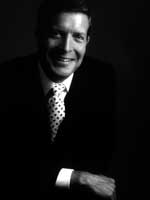College
President's Series:

Dr. Joseph W. Polisi—President,
The Juilliard School
by Joan Baum, Ph.D.
In what
must surely be one of the most unusual reversals in the academic
world, Joseph W. Polisi, in his 20th year as president of
The Julliard School, announces with pride that under his
leadership he has decreased enrollment at the prestigious
institution from 900 to 700, while also garnering support
from a successful capital campaign to start building a new
wing. At the same time, he points to a more diverse application
pool, an enhanced curriculum in the humanities and liberal
arts, including an exchange program and a joint degree program
with Columbia and Barnard, new collaborative arrangements with
Lincoln Center, a strong and growing mentoring/outreach initiative,
and obviously, with reduced numbers, a more competitive audition
and acceptance process and more rigorously controlled distribution,
in music, of various instruments—12 of the different
woodwinds, while violinists (120) now top the piano students
(100). But the new wing will give everyone more rehearsal and
performance space, he promises.
Of course,
Dr. Polisi himself is unusual—a
professional bassoonist who still performs and makes CDs (his
father, William Polisi, was principal bassoonist of the New
York Philharmonic)—and an administrator who holds a Bachelor
of Arts degree in political science, a Masters in international
relations from the Fletcher School of Law and Diplomacy, and,
oh, yes, several graduate degrees in Music from Yale. Before
coming to Juilliard Dr. Polisi honed his administrative skills
as dean at the University of Cincinnati College Conservatory
of Music and at the Manhattan School of Music, and prior to that, as
Executive Officer of the Yale University School of Music. Each
position, it seems, has deepened his commitment to students
as both emerging artists and citizens who will “give
back” to the wider community. Juilliard students, he
says, seem to have an inborn passion for social change that
he is delighted to encourage. On their own, for example, they
have organized groups to perform at Rikers Island and have
established in Homestead, Florida, so devastated from Hurricane
Andrew in 1992, a two-week arts camp for underprivileged kids.
Performers,
Dr. Polisi feels—musicians, dancers,
actors—have a “moral responsibility” to connect
the arts to the world, a theme he articulates in a course he
teaches at the graduate school, “American Society and
the Arts.” The theme reflects his strong belief that
Juilliard students are “educated,” not “trained,” a
distinction that infuses everything he has done at the School
and continues to plan. He is especially pleased with the increasing
number of programs for youngsters, bringing to Juilliard about
100 underprivileged children for a kind of musical head start,
an initiative that involves parents and care givers; a 300-student
pre-college program of lessons in performance, history and
theory that draws young people from all over the country and
Canada; a 30-week student-as-teacher enrichment collaboration
with West Side schools, grades 3 and 5; “significant” outreach
also by word-of-mouth, whereby over 100,000 people come to
Juilliard student plays, dance recitals and music performances;
the June Noble Larkin Program in the Humanities, an interdisciplinary
mentoring program for undergraduate and graduate students that
links students in one discipline to faculty in another, so
that, a violinist may be working with a dance major. There
is more, but his eyes light up: he wants to note Juilliard's
Centennial in 2005–-6, plans that include 18 commissioned
new works, tours of the country and of Europe, lunchtime concerts
around the city, and the continuing involvement of Juilliard
students in civic life. If students are to be “effective
missionaries,” understanding and promoting the politics,
economics, and culture of the arts, as well as performing,
they must be persuasive writers and speakers. Look to that
new wing to extend this vision.#
Teachers who want to connect
with Juilliard students should call Dr. Aaron Flagg, Director
of Educational Outreach: (212) 799-5000, ext.298.
